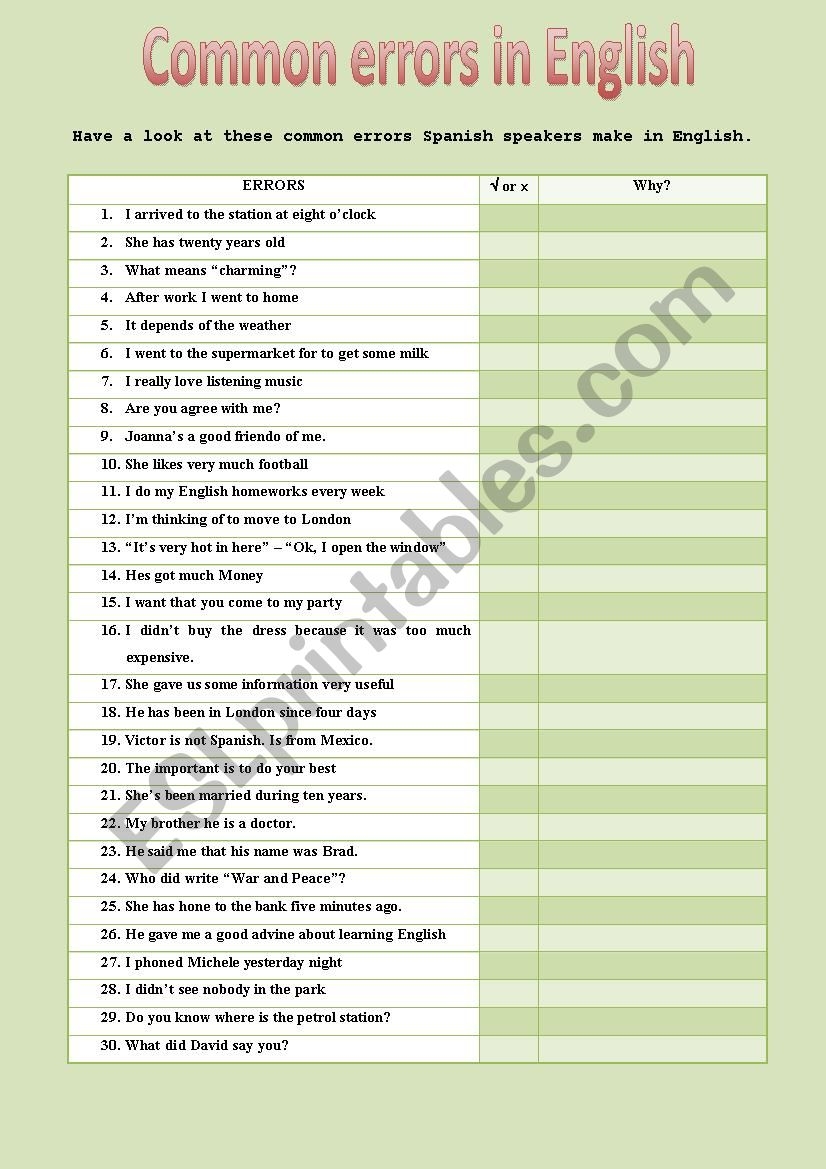English is a tricky language with many rules and exceptions. Even native speakers can make mistakes sometimes. Here are 50 common mistakes in English that you should be aware of to improve your language skills.
1. Mixing up “your” and “you’re.”
2. Confusing “there,” “their,” and “they’re.”
3. Incorrectly using “its” and “it’s.”
4. Misusing “than” and “then.”
5. Using “affect” instead of “effect.”
One common mistake is using “loose” instead of “lose.” Remember, “loose” means not tight, while “lose” means to misplace or fail to win. Another common error is mixing up “fewer” and “less.” Use “fewer” for countable items and “less” for uncountable items.
Many people also struggle with the difference between “who” and “whom.” Use “who” when referring to the subject of a sentence and “whom” when referring to the object. Additionally, be careful with double negatives, as they can make your sentences confusing. Avoid saying things like “I don’t want no trouble.”
When writing, watch out for common spelling errors such as “definately” instead of “definitely.” It’s important to proofread your work to catch these mistakes. Another frequent error is using “then” when you mean “than.” Remember, “than” is used for comparisons, while “then” is used for sequences of events.
In conclusion, mastering English can be challenging, but by being aware of these common mistakes, you can improve your language skills. Practice makes perfect, so keep practicing and learning from your errors. Remember, everyone makes mistakes, but it’s how you learn from them that matters.
